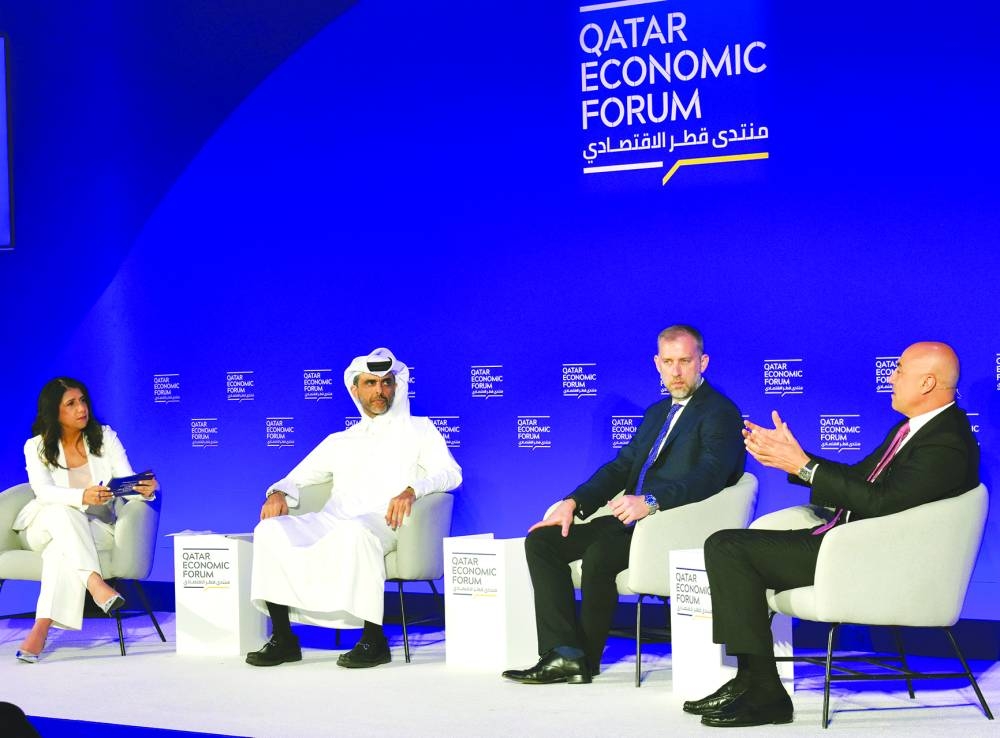Owing to Qatar’s strategic vision to become a global investment and lifestyle destination, coupled with increased transparency and strong demand across various segments, the country’s real estate sector is entering a robust new phase of growth, the Real Estate Regulatory Authority’s (Aqarat) top official has said.
Speaking at the ‘The Future of Real Estate Supply & Demand’ panel discussion on the sidelines of Qatar Economic Forum, Powered by Bloomberg Wednesday, Aqarat president Khalid al-Obaidli shared an optimistic outlook of the sector, alongside co-panellists David L Steinbach, global chief investment officer, Hines, and Fettah Tamince, founder and chairman, Rixos Hotels.
Al-Obaidli underscored Qatar’s proactive approach to promoting the country’s real estate market globally, saying among Aqarat’s focus is to ensure various developments like the world-class Simaisma project, meet top international standards in governance, information availability, and transparency.
According to al-Obaidli, Qatar’s successful hosting of the 2022 FIFA World Cup served as a vital catalyst for infrastructure development. He said, “The World Cup provided a foundation not just for a single major event, but for numerous future events that Qatar is hosting and plans to host annually.”
Al-Obaidli acknowledged the natural downturn post-FIFA World Cup, but he emphasised that “the market cycle is now picking up,” citing strong demand in residential and specialised, luxurious office spaces that offer solutions rather than just open areas. He also noted significant demand in niche markets, such as private hospitals and sports facilities across strategic locations in the country.
He noted that Q1 2025 marked the strongest in Qatar’s real estate history in terms of sales and rentals, with a “17.9%” increase. He also pointed to other promising economic indicators, including a “2.4%” GDP increase last year and a drop in inflation to 1.1%.
Asked about concerns of a potential oversupply compared to Doha’s Gulf neighbours, Dubai and Abu Dhabi, al-Obaidli emphasised that the country is “competing with ourselves” to offer a “unique lifestyle.”
He underscored the need for private sector developers to explore and understand the specific requirements for Qatar and the broader Gulf region, saying that investing in Qatar opens access to key markets like Saudi Arabia, UAE, and Bahrain.
Al-Obaidli also described Qatar as a model for future cities, citing the convenience of short commutes to schools, work, and world-class hospitals and medical facilities. He said Qatar offers a work-life balance compared to other larger cities around the world.
Tamince echoed al-Obaidli’s sentiment on Qatar’s strategic advantage as a “future city.” He explained that Rixos’s strategic investments, particularly for multi-use projects like theme parks and resorts, are heavily influenced by a city’s vision, infrastructure, promotional efforts, event calendars, and safety.
Meanwhile, Steinbach weighed in on the topic of “deglobalisation,” and predicted that while trade patterns are shifting, the Middle East region, including Qatar, “stands to be a winner as new trade routes and ways of working emerge.”

Aqarat president Khalid al-Obaidli shared an optimistic outlook of the sector, alongside co-panellists David L Steinbach, global chief investment officer, Hines, and Fettah Tamince, founder and chairman, Rixos Hotels. PICTURE: Thajudheen

